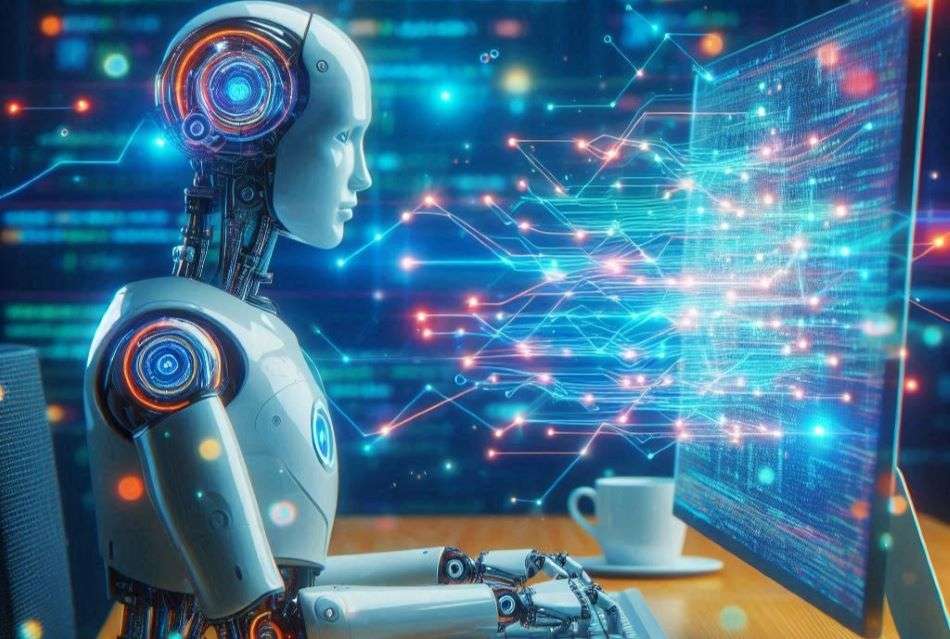In recent years, the realm of education has witnessed a significant transformation with the advent of Artificial Intelligence (AI). Among its many applications, AI for educational video content stands out as a powerful tool, revolutionizing how knowledge is delivered and consumed. By integrating AI into educational videos, educators and learners alike can benefit from enhanced interactivity, personalized learning experiences, and improved engagement.
The potential of AI for educational video content is immense. As more educational institutions and content creators explore its capabilities, it is becoming clear that AI has the power to reshape the landscape of learning. This article delves into the various aspects of AI’s impact on educational video content, providing insights into its benefits and future potential.

The Role of AI in Video Content Creation
AI plays a crucial role in the creation of educational video content by automating various processes, enhancing the efficiency and quality of production. From video editing to scriptwriting, AI tools are capable of performing tasks that traditionally required human intervention. This not only saves time but also ensures consistency and accuracy in the final product.
Automated Video Editing
One of the most significant contributions of AI in video content creation is automated editing. AI-powered tools can analyze raw footage, identify key moments, and assemble them into a coherent video. This technology minimizes the need for manual editing, allowing educators and content creators to focus on more creative aspects of video production.
Scriptwriting and Storyboarding
AI is also making strides in scriptwriting and storyboarding. By analyzing data from various sources, AI can generate scripts that are tailored to the target audience’s preferences and learning objectives. This ensures that the content is both engaging and informative, catering to the diverse needs of learners.
Enhancing Engagement Through AI
Engagement is a critical component of effective learning, and AI is helping to enhance this aspect of educational video content. By incorporating interactive elements and personalized recommendations, AI ensures that learners remain actively involved in the learning process.
Interactive Videos
AI enables the creation of interactive videos that allow learners to engage with the content in real-time. Features such as quizzes, clickable links, and branching scenarios encourage active participation, leading to better retention of information.
Personalized Learning Experiences
Through data analysis, AI can provide personalized learning experiences by recommending content based on the learner’s preferences and performance. This ensures that each learner receives a tailored educational journey, maximizing their potential for success. For more on this, explore AI tools for YouTube videos.
Improving Accessibility in Education
One of the most profound impacts of AI for educational video content is its ability to improve accessibility. AI technologies are breaking down barriers to education, making learning more inclusive and accessible to individuals with diverse needs.
Subtitles and Translations
AI can automatically generate subtitles and translate video content into multiple languages. This feature is invaluable for learners who are deaf or hard of hearing, as well as those who speak different languages, ensuring that educational resources are accessible to a global audience.
Adaptive Learning Technologies
Adaptive learning technologies powered by AI adjust the difficulty level of educational content based on the learner’s progress. This personalization ensures that each student receives appropriate challenges, promoting optimal learning outcomes.
Future Trends in AI for Educational Video Content
The future of AI for educational video content is promising, with several trends set to shape the landscape of learning. As technology continues to advance, we can expect even more innovative applications of AI in education.
Virtual Reality and Augmented Reality
The integration of AI with virtual reality (VR) and augmented reality (AR) is creating immersive learning experiences. These technologies enable learners to explore complex concepts in a virtual environment, enhancing their understanding and engagement.
AI-Driven Analytics
AI-driven analytics are providing educators with valuable insights into learner behavior and performance. By analyzing data from educational videos, AI can identify trends and patterns, helping educators tailor their teaching strategies to meet the needs of their students. For more insights, visit AI tools for video marketers.
Challenges and Considerations
While the potential of AI for educational video content is vast, there are also challenges and considerations to keep in mind. Addressing these issues is crucial to ensuring the successful integration of AI in education.
Data Privacy and Security
The use of AI in education raises concerns about data privacy and security. Ensuring that learner data is protected and used responsibly is paramount to maintaining trust in AI-powered educational tools.
Ethical Considerations
AI technologies must be developed and implemented ethically, with a focus on inclusivity and fairness. This ensures that all learners benefit from AI-enhanced educational resources, regardless of their background or circumstances.
Conclusion
In conclusion, the integration of AI for educational video content is transforming the way we learn and teach. By enhancing engagement, improving accessibility, and providing personalized learning experiences, AI is paving the way for a new era of education. As we continue to explore the possibilities of AI, it is essential to address the challenges and considerations that come with it, ensuring that the benefits of AI in education are realized by all.
For further exploration of AI’s impact on educational video content, visit Piktochart’s blog on AI tools.

Frequently Asked Questions (FAQs)
What is AI for educational video content?
AI for educational video content refers to the use of artificial intelligence technologies to enhance the creation, delivery, and consumption of video-based educational materials. It involves automating processes, personalizing learning experiences, and improving accessibility for learners.
How does AI improve engagement in educational videos?
AI improves engagement by incorporating interactive elements such as quizzes and branching scenarios, as well as providing personalized content recommendations based on the learner’s preferences and performance.
What are the challenges of implementing AI in educational videos?
Challenges include data privacy and security concerns, ethical considerations, and ensuring that AI technologies are developed and implemented inclusively and fairly to benefit all learners.






